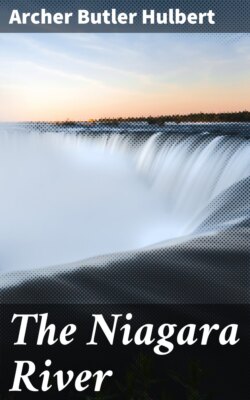Читать книгу The Niagara River - Archer Butler Hulbert - Страница 16
На сайте Литреса книга снята с продажи.
From the Falls to Lake Ontario
ОглавлениеTable of Contents
These American rivers of ours have their messages, historical, economic, and social, to both reader and loiterer. And, too, are not these streams so very much alive that through the years their personalities remain practically unchanged, while generations of loiterers come and go on forever? Are not the eccentricities of these great living forces forever recurrent, however whimsical they may seem, to us as we stop for our brief instant at the shore?
The word Niagara stands to-day representing power; the most common metaphor used, perhaps, to represent perpetual irresistible force is found in the name Niagara. Now it is admitted that nothing is more interesting than to observe the contradictions noticeable in most strong personalities. View the Niagara from this personal standpoint. I think its most attractive features may be summed up in a catalogue of its eccentric contradictions. It is famous as a waterfall, yet its greatest beauty is to be found in its smallest rapids. Its thundering fall outrivals all other sounds of Nature, yet you can hear a sparrow sing when the spray of the torrent is drenching you; the "noise" of Niagara is often spoken of as the greatest sound ever heard, yet most of the cataract's music has never been heard because it is pitched too low for human ears. Niagara's Whirlpool is a placid, mirrored lake compared to the rapids above and below it and brings from the lips of the majority of sightseers, looking only at the surface of things, words of disappointment. The great message and influence of the foaming cataract and rapids and terrible pool, to all awake to the finer meanings, as has been so beautifully brought out by Mr. Howells, should be one of singular repose. The louder the music the more certain the strange influence of this message of quiet and calm.
Take, for instance, what is so commonly called the roar of Niagara, but which ought to be known as the music of Niagara, first at the Rapids and then the Falls.
There is sweet music in Niagara's lesser rapids. Mrs. Schuyler Van Rensselaer observes, most felicitously:
It is a great and mighty noise, but it is not, as Hennepin thought, an "outrageous noise." It is not a roar. It does not drown the voice or stun the ear. Even at the actual foot of the falls it is not oppressive. It is much less rough than the sound of heavy surf—steadier, more homogeneous, less metallic, very deep and strong, yet mellow and soft; soft, I mean, in its quality. As to the noise of the rapids, there is none more musical. It is neither rumbling nor sharp. It is clear, plangent, silvery. It is so like the voice of a steep brook—much magnified, but not made coarser or more harsh—that, after we have known it, each liquid call from a forest hillside will seem, like the odour of grapevines, a greeting from Niagara. It is an inspiriting, an exhilarating sound, like freshness, coolness, vitality itself made audible. And yet it is a lulling sound. When we have looked out upon the American rapids for many days, it is hard to remember contented life amid motionless surroundings; and so, when we have slept beside them for many nights, it is hard to think of happy sleep in an empty silence.
